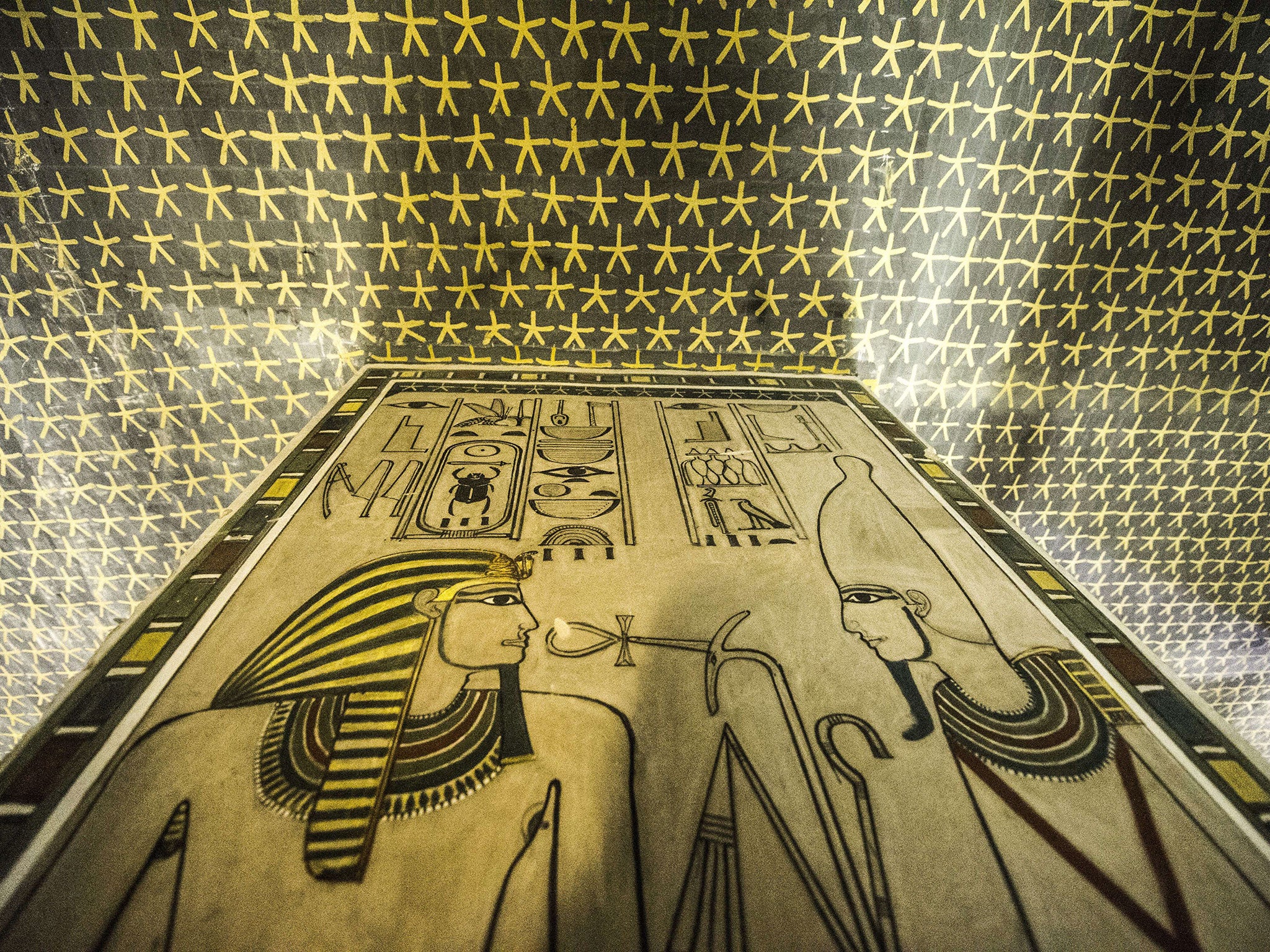Queen Nefertiti tomb: Egypt hopes big discovery from the past can boost its flagging tourism industry
British archaeologists' theory that the queen's final resting place is located behind walls in the tomb of famed boy-king Tutankhamun, has been enthusiastically received by the Egyptian Minister for Antiquities

Facing a steep drop in tourist numbers, Egypt is hoping to invest in the future with a big discovery from the past – the final resting place of Queen Nefertiti.
Egyptologist Nicholas Reeves has stirred fierce debate with his theory that behind walls in the tomb of famed boy-king Tutankhamun are passages that lead to two hidden chambers, one a second tomb.
As the Egyptian government promised swift action to survey the site, a process they would look to begin within three months if not sooner, Dr Reeves continued to expound on his vision.
“What is hidden beyond will not be the burial of an ordinary queen,” said Dr Reeves, a British archaeologist. “It will be that of a super queen who enjoyed obvious pharaonic privileges, and the only one who at this time seems to fit that description was Nefertiti.”
His theory – based on high-resolution scans of the walls of the tomb – was enthusiastically received by the Egyptian Minister for Antiquities, Mamdouh el-Damaty. “If it is true, we are facing a discovery that would overshadow the discovery of Tutankhamun himself,” he said.
“I am about 67 per cent sure that we will find a new tomb behind the burial chamber of King Tutankhamun,” he added, before saying more decisively: “When we rediscover the tomb again, now with another tomb, this will be the most important discovery of this century.”
Mr Damaty stressed that the tomb could be one of several queens, including Nefertiti. Yet the possibility of finding a bounty akin to the discovery of Tutankhamun’s tomb by Howard Carter in 1922 is a tantalising prospect not just for archaeologists, but for Egypt’s flagging tourism industry.
The news could also be a boon for nationalistic sentiment, following years of political turmoil. “People really do want some good news, and this could be really great news,” agreed Dr Reeves.
Dr Reeves and a team funded by the Japanese television channel Tokyo Broadcasting System will use radar and thermal imaging technology that, Mr Damaty said, could be obtained and be operational on site within one to three months.
However, Dr Reeves’ theory has been met with scepticism among parts of the archaeological community. “Talk of the doorways would have been fine,” according to Dr Aidan Dodson, an Egyptologist at the University of Bristol, but to add Nefertiti was “speculative” he said.
“I think it’s quite clear that the part that included Nefertiti was to get more publicity and to get a groundswell to start investigations sooner rather than later,” he added.
For the moment, the whereabouts of the grave of Queen Nefertiti remain an enigma. Dr Reeves said that “until I’m shaking hands with the lady, I’m not going to take anything for granted”.
Join our commenting forum
Join thought-provoking conversations, follow other Independent readers and see their replies
Comments
Bookmark popover
Removed from bookmarks